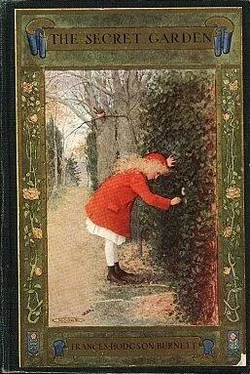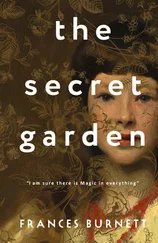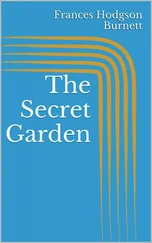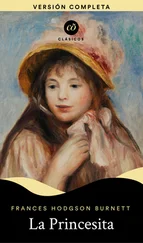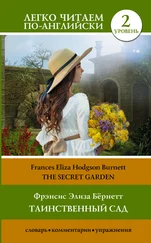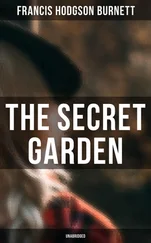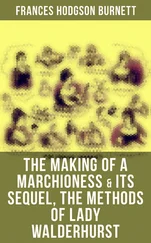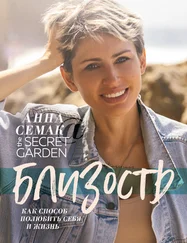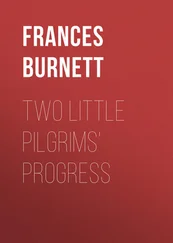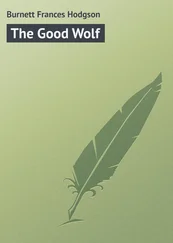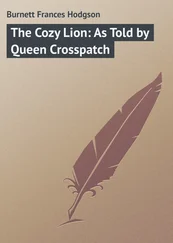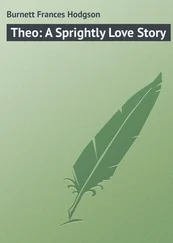Frances Burnett - The Secret Garden
Здесь есть возможность читать онлайн «Frances Burnett - The Secret Garden» — ознакомительный отрывок электронной книги совершенно бесплатно, а после прочтения отрывка купить полную версию. В некоторых случаях можно слушать аудио, скачать через торрент в формате fb2 и присутствует краткое содержание. Жанр: Детская проза, на английском языке. Описание произведения, (предисловие) а так же отзывы посетителей доступны на портале библиотеки ЛибКат.
- Название:The Secret Garden
- Автор:
- Жанр:
- Год:неизвестен
- ISBN:нет данных
- Рейтинг книги:3.25 / 5. Голосов: 4
-
Избранное:Добавить в избранное
- Отзывы:
-
Ваша оценка:
- 60
- 1
- 2
- 3
- 4
- 5
The Secret Garden: краткое содержание, описание и аннотация
Предлагаем к чтению аннотацию, описание, краткое содержание или предисловие (зависит от того, что написал сам автор книги «The Secret Garden»). Если вы не нашли необходимую информацию о книге — напишите в комментариях, мы постараемся отыскать её.
This and all associated files of various formats will be found in:
The Secret Garden — читать онлайн ознакомительный отрывок
Ниже представлен текст книги, разбитый по страницам. Система сохранения места последней прочитанной страницы, позволяет с удобством читать онлайн бесплатно книгу «The Secret Garden», без необходимости каждый раз заново искать на чём Вы остановились. Поставьте закладку, и сможете в любой момент перейти на страницу, на которой закончили чтение.
Интервал:
Закладка:
There was a laurel-hedged walk which curved round the secret garden and ended at a gate which opened into a wood, in the park. She thought she would skip round this walk and look into the wood and see if there were any rabbits hopping about. She enjoyed the skipping very much and when she reached the little gate she opened it and went through because she heard a low, peculiar whistling sound and wanted to find out what it was.
It was a very strange thing indeed. She quite caught her breath as she stopped to look at it. A boy was sitting under a tree, with his back against it, playing on a rough wooden pipe. He was a funny looking boy about twelve. He looked very clean and his nose turned up and his cheeks were as red as poppies and never had Mistress Mary seen such round and such blue eyes in any boy's face. And on the trunk of the tree he leaned against, a brown squirrel was clinging and watching him, and from behind a bush nearby a cock pheasant was delicately stretching his neck to peep out, and quite near him were two rabbits sitting up and sniffing with tremulous noses—and actually it appeared as if they were all drawing near to watch him and listen to the strange low little call his pipe seemed to make.
When he saw Mary he held up his hand and spoke to her in a voice almost as low as and rather like his piping.
"Don't tha' move," he said. "It'd flight 'em."
Mary remained motionless. He stopped playing his pipe and began to rise from the ground. He moved so slowly that it scarcely seemed as though he were moving at all, but at last he stood on his feet and then the squirrel scampered back up into the branches of his tree, the pheasant withdrew his head and the rabbits dropped on all fours and began to hop away, though not at all as if they were frightened.
"I'm Dickon," the boy said. "I know tha'rt Miss Mary."
Then Mary realized that somehow she had known at first that he was Dickon. Who else could have been charming rabbits and pheasants as the natives charm snakes in India? He had a wide, red, curving mouth and his smile spread all over his face.
"I got up slow," he explained, "because if tha' makes a quick move it startles 'em. A body 'as to move gentle an' speak low when wild things is about."
He did not speak to her as if they had never seen each other before but as if he knew her quite well. Mary knew nothing about boys and she spoke to him a little stiffly because she felt rather shy.
"Did you get Martha's letter?" she asked.
He nodded his curly, rust-colored head.
"That's why I come."
He stooped to pick up something which had been lying on the ground beside him when he piped.
"I've got th' garden tools. There's a little spade an' rake an' a fork an' hoe. Eh! they are good 'uns. There's a trowel, too. An' th' woman in th' shop threw in a packet o' white poppy an' one o' blue larkspur when I bought th' other seeds."
"Will you show the seeds to me?" Mary said.
She wished she could talk as he did. His speech was so quick and easy. It sounded as if he liked her and was not the least afraid she would not like him, though he was only a common moor boy, in patched clothes and with a funny face and a rough, rusty-red head. As she came closer to him she noticed that there was a clean fresh scent of heather and grass and leaves about him, almost as if he were made of them. She liked it very much and when she looked into his funny face with the red cheeks and round blue eyes she forgot that she had felt shy.
"Let us sit down on this log and look at them," she said.
They sat down and he took a clumsy little brown paper package out of his coat pocket. He untied the string and inside there were ever so many neater and smaller packages with a picture of a flower on each one.
"There's a lot o' mignonette an' poppies," he said. "Mignonette's th' sweetest smellin' thing as grows, an' it'll grow wherever you cast it, same as poppies will. Them as'll come up an' bloom if you just whistle to 'em, them's th' nicest of all."
He stopped and turned his head quickly, his poppy-cheeked face lighting up.
"Where's that robin as is callin' us?" he said.
The chirp came from a thick holly bush, bright with scarlet berries, and Mary thought she knew whose it was.
"Is it really calling us?" she asked.
"Aye," said Dickon, as if it was the most natural thing in the world, "he's callin' some one he's friends with. That's same as sayin' 'Here I am. Look at me. I wants a bit of a chat.' There he is in the bush. Whose is he?"
"He's Ben Weatherstaff's, but I think he knows me a little," answered Mary.
"Aye, he knows thee," said Dickon in his low voice again. "An' he likes thee. He's took thee on. He'll tell me all about thee in a minute."
He moved quite close to the bush with the slow movement Mary had noticed before, and then he made a sound almost like the robin's own twitter. The robin listened a few seconds, intently, and then answered quite as if he were replying to a question.
"Aye, he's a friend o' yours," chuckled Dickon.
"Do you think he is?" cried Mary eagerly. She did so want to know. "Do you think he really likes me?"
"He wouldn't come near thee if he didn't," answered Dickon. "Birds is rare choosers an' a robin can flout a body worse than a man. See, he's making up to thee now. 'Cannot tha' see a chap?' he's sayin'."
And it really seemed as if it must be true. He so sidled and twittered and tilted as he hopped on his bush.
"Do you understand everything birds say?" said Mary.
Dickon's grin spread until he seemed all wide, red, curving mouth, and he rubbed his rough head.
"I think I do, and they think I do," he said. "I've lived on th' moor with 'em so long. I've watched 'em break shell an' come out an' fledge an' learn to fly an' begin to sing, till I think I'm one of 'em. Sometimes I think p'raps I'm a bird, or a fox, or a rabbit, or a squirrel, or even a beetle, an' I don't know it."
He laughed and came back to the log and began to talk about the flower seeds again. He told her what they looked like when they were flowers; he told her how to plant them, and watch them, and feed and water them.
"See here," he said suddenly, turning round to look at her. "I'll plant them for thee myself. Where is tha' garden?"
Mary's thin hands clutched each other as they lay on her lap. She did not know what to say, so for a whole minute she said nothing. She had never thought of this. She felt miserable. And she felt as if she went red and then pale.
"Tha's got a bit o' garden, hasn't tha'?" Dickon said.
It was true that she had turned red and then pale. Dickon saw her do it, and as she still said nothing, he began to be puzzled.
"Wouldn't they give thee a bit?" he asked. "Hasn't tha' got any yet?"
She held her hands even tighter and turned her eyes toward him.
"I don't know anything about boys," she said slowly. "Could you keep a secret, if I told you one? It's a great secret. I don't know what I should do if any one found it out. I believe I should die!" She said the last sentence quite fiercely.
Dickon looked more puzzled than ever and even rubbed his hand over his rough head again, but he answered quite good-humoredly.
"I'm keepin' secrets all th' time," he said. "If I couldn't keep secrets from th' other lads, secrets about foxes' cubs, an' birds' nests, an' wild things' holes, there'd be naught safe on th' moor. Aye, I can keep secrets."
Mistress Mary did not mean to put out her hand and clutch his sleeve but she did it.
"I've stolen a garden," she said very fast. "It isn't mine. It isn't anybody's. Nobody wants it, nobody cares for it, nobody ever goes into it. Perhaps everything is dead in it already; I don't know."
She began to feel hot and as contrary as she had ever felt in her life.
"I don't care, I don't care! Nobody has any right to take it from me when I care about it and they don't. They're letting it die, all shut in by itself," she ended passionately, and she threw her arms over her face and burst out crying—poor little Mistress Mary.
Читать дальшеИнтервал:
Закладка:
Похожие книги на «The Secret Garden»
Представляем Вашему вниманию похожие книги на «The Secret Garden» списком для выбора. Мы отобрали схожую по названию и смыслу литературу в надежде предоставить читателям больше вариантов отыскать новые, интересные, ещё непрочитанные произведения.
Обсуждение, отзывы о книге «The Secret Garden» и просто собственные мнения читателей. Оставьте ваши комментарии, напишите, что Вы думаете о произведении, его смысле или главных героях. Укажите что конкретно понравилось, а что нет, и почему Вы так считаете.
